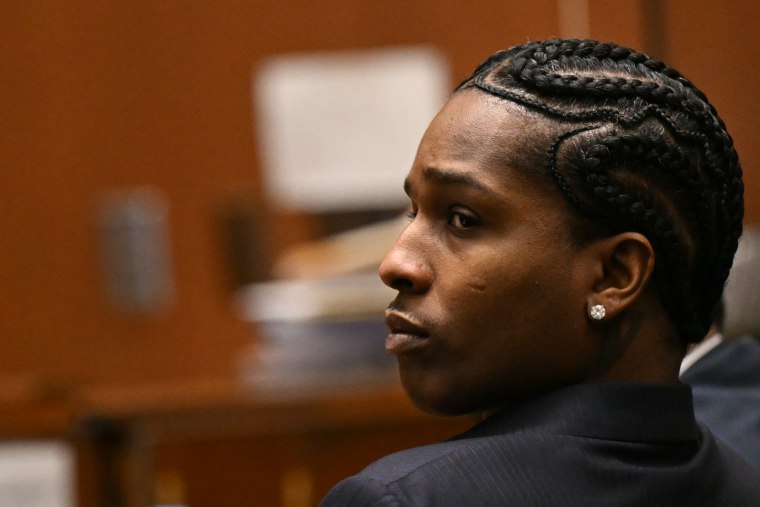Rachel Brown and Nate Amos have never shied away from confrontation with difficult emotions in their music as Water From Your Eyes — although, as Brown points out in the newest episode of Sounds of Saving’s “Songs That Found Me at the Right Time” series, “It’s ‘Water From Your Eyes,’ not ‘Water From Our Eyes.’” (“We’re not sad, you’re sad,” Amos adds.) The video, directed by Adam Donald and produced in partnership with 988 Crisis and Suicide Lifeline, features Amos and Brown discussing their own experiences of depression, self-destruction, and suicidal ideation before launching into a cover of Ween’s “If You Could Save Yourself (You’d Save Us All).”
The criminally underrated closer of Ween’s 2003 album Quebec is a relatively straightforward entry from the notoriously whimsical band, an archetypal Gene Ween sad track that deserves a place in their enormous canon alongside the much-more-mean-spirited “Baby Bitch.” The song opens on an unusual scene — a “free ride home from the embassy” on which the protagonist spots “the governor and his lover holding hands” — but quickly becomes more relatable as themes of isolation, bitterness, and regret enter the fray. Our hero gets back to his place, empties his suitcase, and opens his windows wide. The chorus, as raw as an open cut, is best printed in full:
If you could save yourself, you’d save us all
Is that what you called me for
Is that why you’re knocking on my door?
The time I’ve spent working myself to death
Thought that’s what you wanted
I thought you needed my help
To make it good again, to make us strong
To make you happy, to push you along
And gain some respect to be thrown a crumb
I was on my knees when you knocked me down
Even in this vulnerable mode, the cynical sneer that tails Gene like a shadow leaks through the cracks, especially in the song’s final verse (“The wheels fell off, the bottom dropped out / The checks all bounced, I came in your mouth / Your mother came calling but there was no one around”). Delivered in Brown’s disarmingly pure voice above Amos’ simple but precise acoustic strumming, however, the song assumes a new form, ripping the scab open and letting the pain gush freely. The harrowing lines that bring that second verse to a close — “The trash caught fire when the leaves turned brown / The vultures were circling when the circus left town / I left you a note but I wrote it in disappearing ink” — tug a little harder at the heartstrings in Brown’s command. And the final chorus, despite its gutting message, soars strikingly higher in her alto register, allowing a sense of hope that’s nowhere to be found in the Ween version.
All this comes in the SoS video after an intensely emotional dialogue between Amos and Brown, in which Brown relates the suicidal thoughts that plagued her all through high school and Amos opens up about the substance abuse he used as a coping mechanism in his early adulthood. Discussing her relationship with “If You Could Save Yourself,” Brown gives perhaps the most poignant description one can of a song that touches them on a level beyond language: “When I listen to it, it sounds like how I feel sometimes inside.”




